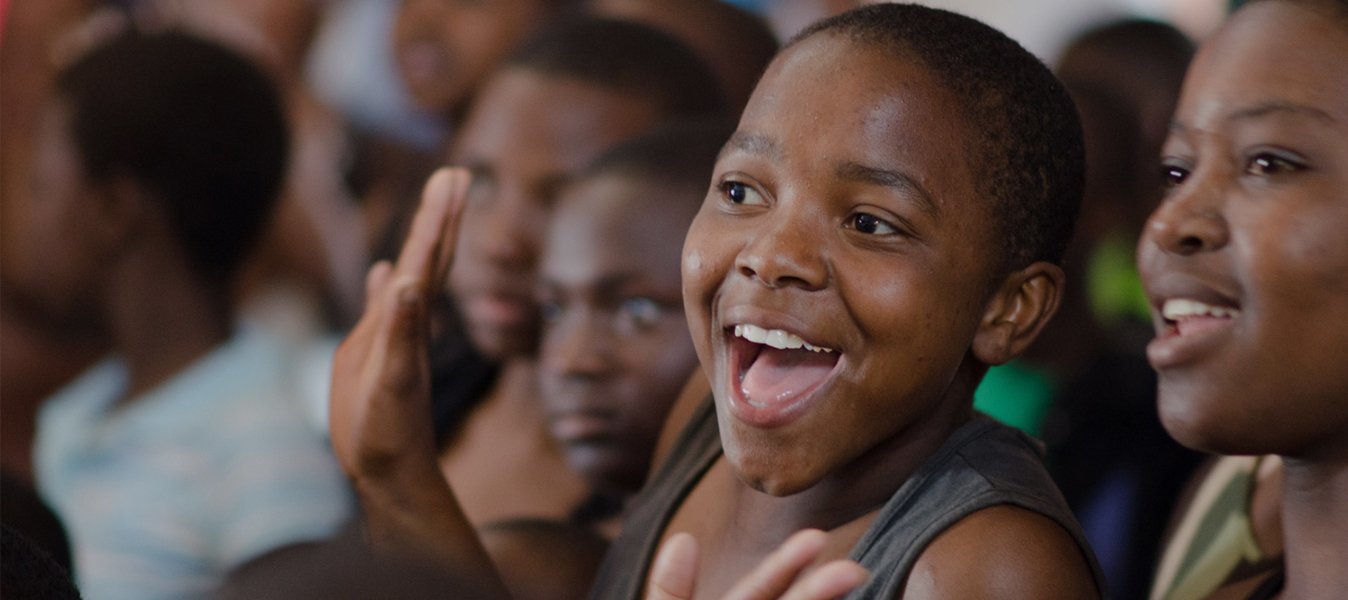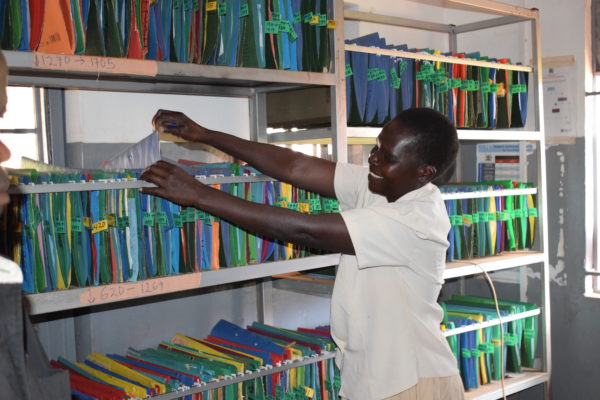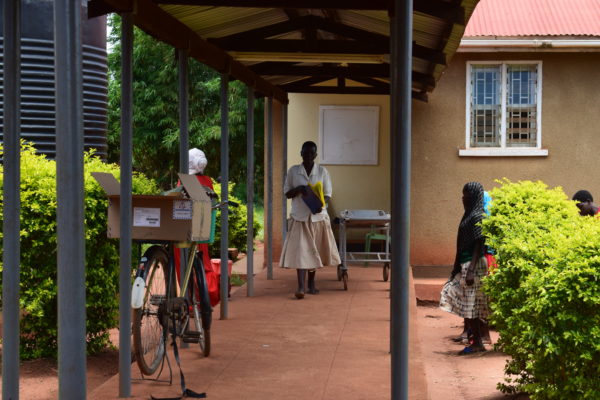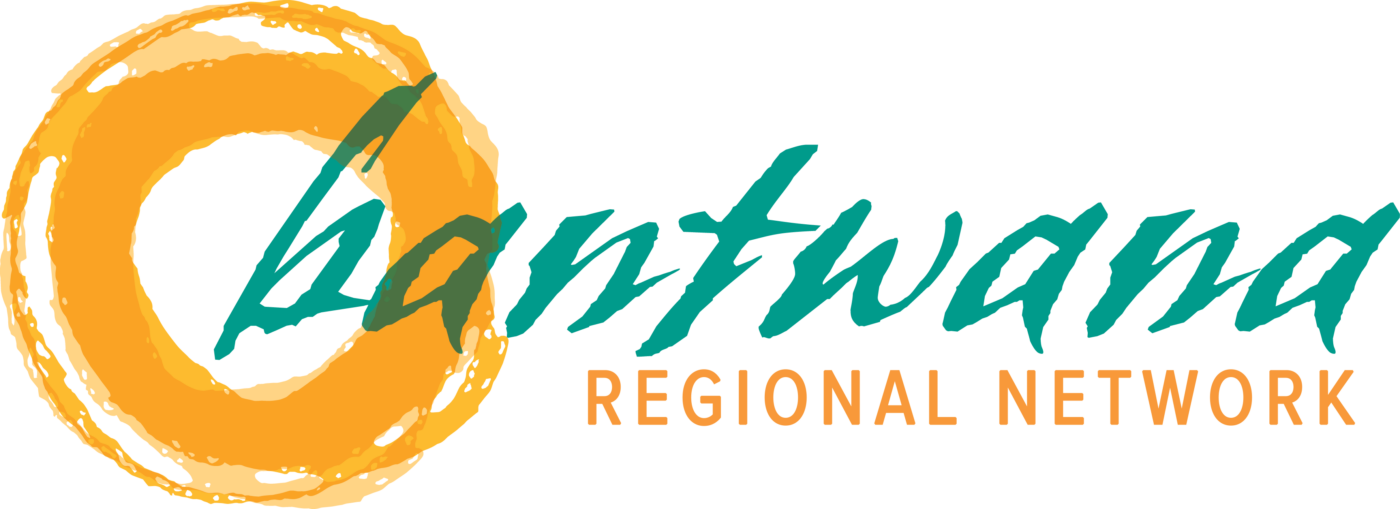
Ripples of Change: Leveraging the Power and experience of HIV+ Para-Social Workers to Strengthen the Social Service Workforce
Under the USAID/Uganda Better Outcomes for Children and Youth in Eastern and Northern Uganda, WEI/Bantwana and its government and locals partners build the resilience of vulnerable children and families through proven, integrated social protection models of care that address children’s multiple vulnerabilities across the HIV continuum. To date, 127,000 children and their families across 20 districts have benefited from the program.

For Felista Chandi, learning that she and her husband were HIV+ in 2009 marked the beginning of her withdrawal from society to isolation. “I used to fear to talk to people. I did not even go into communities,” she recalls.
Today, she is at the forefront of helping orphans and vulnerable children (OVC), including HIV+ children and their caregivers in Eastern Uganda to access vital HIV testing and counseling as well as adherence and social protection services across the continuum of HIV. Felista worked through her fears and concerns about her HIV+ status during counseling sessions with a trained lay counselor that enabled her to accept her condition and start living positively. Her own struggle compelled her to want to support those that were infected and affected in her community.
“Some HIV+ clients would look at me and I could tell them that I am healthy but I am also living positive. Because of that, I earned their trust, and we could talk together about coming to terms with their diagnosis. I could see that my support helped them feel better,” said Felista.
Based on her sound community reputation, in 2015 Felista was selected by local community leaders to be trained as a parasocial worker. The training, was part of government-led efforts to strengthen the community level social welfare workforce and delivered with technical support from BETTER OUTCOMES, a USAID-funded program implemented by the Bantwana Initiative of World Education (WEI/Bantwana). Following her training in parasocial work, Felista was selected for Community Client-Led ART Delivery (CCLAD) training by her community health facility, with support from the Ministry of Health.

The training refreshed Felista’s knowledge of HIV, built her confidence and skills in community mobilization, home visits, and facilitating referrals for HIV prevention and response services. She was also trained in BETTER OUTCOMES HIV-sensitive case management model, which built on her parasocial worker and CCLAD training, to strengthen assessment, referral, case planning skills and explains case conferencing, and case closure processes. The training reinforced Felista’s skills in lay counseling and psychosocial support for children affected by violence and neglect as well as HIV+ children who may be struggling with issues of disclosure, stigma, and adherence.
Felista uses her training in CCLAD to collaborate with village health teams (VHTs), to identify, assess and support vulnerable and HIV+ children. In her role as an Expert Client at the facility level, Felista helps HIV+ young people and their caregivers to access health services from different departments within the health center. Through HIV sensitive case management, she helps families develop case plans and supports them to work towards their goals.
“Because HIV+ clients know me, trust me, and have given their consent, health workers share the names of children and their caregivers who have missed appointments so that I can follow up and talk with children and caregivers about why they missed their appointments, what they are struggling with related to adherence and how best to support them to adhere. Sometimes this includes taking medication at the right time as prescribed by the health service provider, not missing an appointment and eating right. Other times, I address psychosocial support (PSS) issues like encouraging adults or children who feel despondent or are struggling with stresses of poverty, caring for children, stigma in their family or community. I also make sure they are on schedule to come in for their refills,” says Felista.
Felista uses layered counseling and psychosocial support regularly during home visits to counsel families on reducing stress and resolving conflicts, to issues directly related to HIV, including adherence, disclosure and stigma. Case management training also helped Felista learn how to draw on community resources to address sensitive and difficult issues and use a referral map to identify resources. This includes monthly case conferences that bring government, child protection and HIV stakeholders together to help paraosocial workers address difficult cases, referrals bottlenecks and close cases.
“I work with families to prioritize needed services for children. I work closely with community organizations to identify and support children to go back to school, refer families to support for shelter, refer caregivers to saving groups and other livelihoods support, and refer out of school adolescents to life skills and livelihoods support from BETTER OUTCOMES and other community partners,” she explains. Felista refers serious, statutory cases of abuse to the formal system through the Community Development Officer (CDO), Probation Officer and police. “I always follow up to find out whether the child or caregiver was helped and what cases to close,’’ Felista says.
Felista says that it is seeing and being part of the positive change in people’s lives that motivates her to do her work. Felista is especially proud of her support for vulnerable and HIV+ children through her direct support to families and referrals for necessary services. “
It gives me happiness to provide support,’’ she says.
